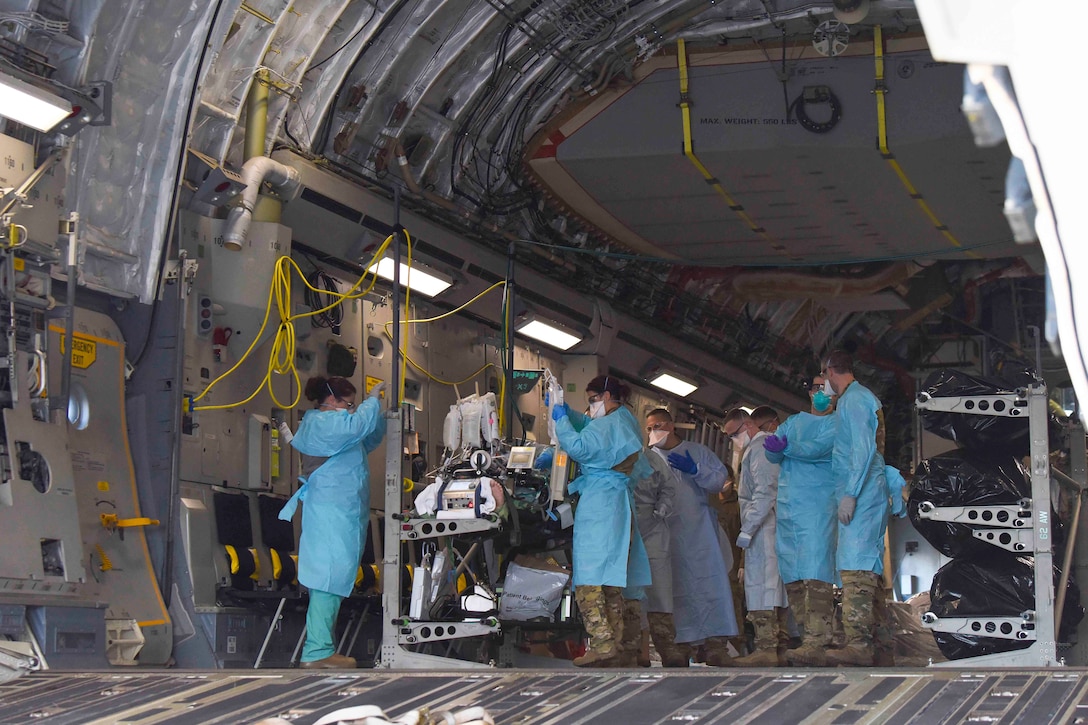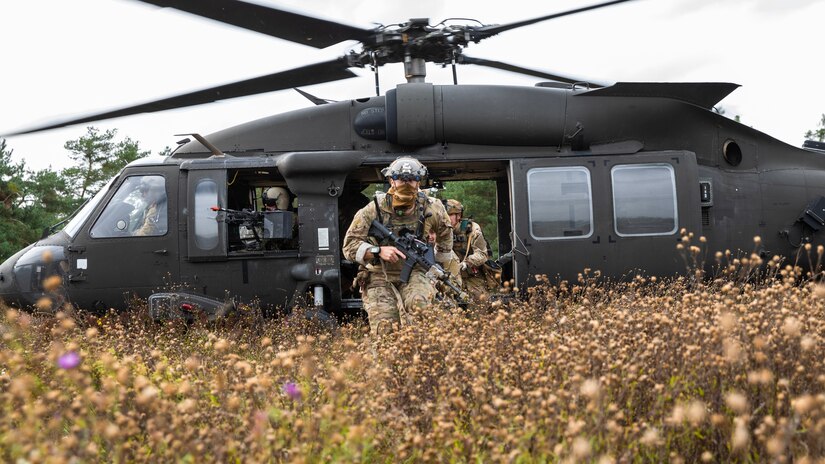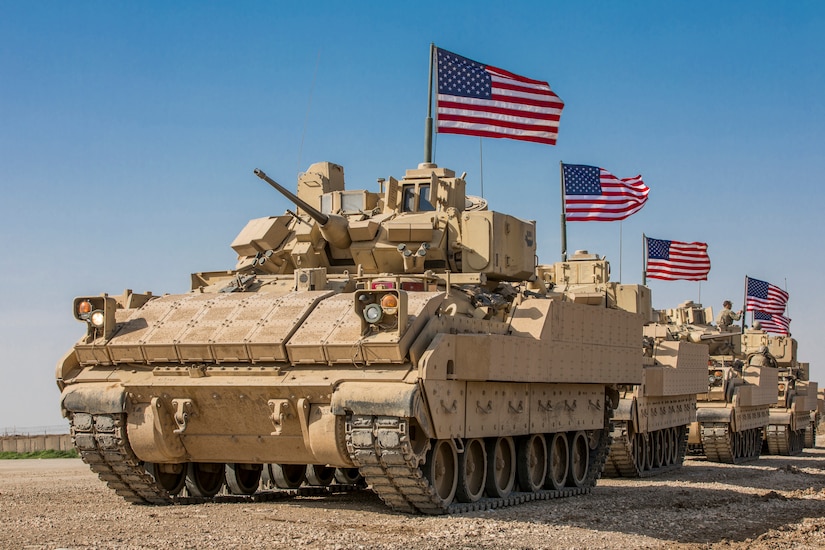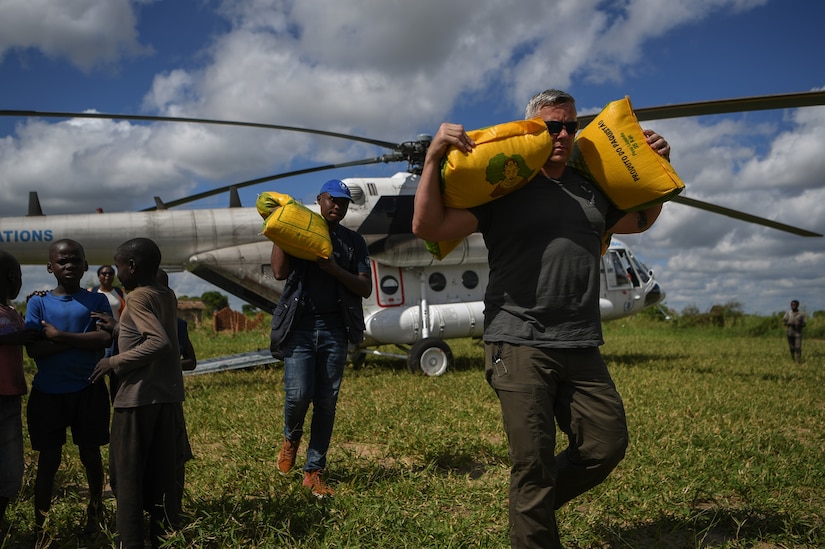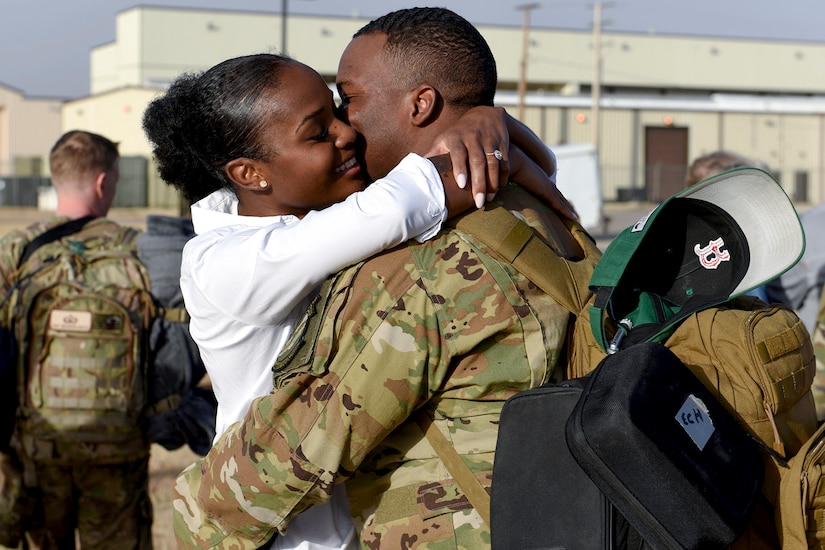April 6, 2021
PRESS SECRETARY JOHN F. KIRBY: Sorry -- I'm sorry. Now you know I'm late. I'm very late today. I apologize. Thank you.
I don't have anything to open with, so we'll start with Bob.
Q: Yes, thanks, John.
I wanted to ask you about this shooting this morning at -- in Maryland. The Navy has put out a statement saying that Navy sailors were involved in some way, and I'm wondering whether you've gotten any word since then about whether the Navy sailors did the shooting, or were they victims of the shooting, or both.
MR. KIRBY: We still don't have all the facts right now, Bob.
I've seen the -- the Navy's statements. I certainly would refer you to them to speak to this.
But information is still coming in. It's still very early, and as you all know early reports tend to have to be modified. So I'm very reticent to speak to this incident with -- in any granularity right now until we simply know more.
Q: So you don't know how many Navy people -- personnel were involved?
MR. KIRBY: I don't, Bob, no.
Q: Okay.
MR. KIRBY: All I know is what -- you know, the Navy has confirmed sailors being involved, but I don't have much more than that.
Q: All right, thanks.
MR. KIRBY: Sorry.
Here in the room. Meghann?
Q: Great. I have an extremism follow-up question as you guys are working next steps.
You, kind of, alluded last week, I think, that there would be some sort of definition -- a more firmed-up definition coming, and I was wondering what sort of resources or organizations you guys would be looking towards to start crafting that -- that definition.
MR. KIRBY: So, we're still working through what next steps are going to be, Meghann. I don't have any specific details for you. The secretary does expect to get updated this week by the service chiefs about their stand-downs, and as I said before, that will inform whatever we do going forward.
I can't commit to you today that there'll be some sort of a specific definition, but clearly, the idea of what is extremist ideology is something that we were all discussing over the last 60 days. I know that will be part of the discussion with the secretary. So I -- I'm not able to promise a specific definition, or promise one by a specific date, but -- but by the end of the week, the secretary expects to -- to be able to hear from the service chiefs, and then we'll go forward from there.
Yeah.
On the phone, Caitlin, Stars & Stripes.
Q: Hi. My question was already asked. Thanks.
MR. KIRBY: All righty. Jeff, Task & Purpose.
Q: Thank you.
Following up on Bob's question, do you have any information on the -- the people who were wounded in the attack, what their medical status is? And I'm seeing reports that the alleged shooter is dead. Can you -- do you have any information about that?
MR. KIRBY: I -- I'm sorry, Jeff. I don't.
Literally, this is all unfolding as -- as we're sitting here talking. It's one of the reasons why I was late, was I was trying to get as much visibility on -- on it as I could. But it is literally unfolding as we sit here and speak, and so I just don't have any more detail than that.
I am sure that we will -- once there's more information, we'll be working with local law enforcement, clearly, and I -- I'm sure more facts will come to light as we get a little distance between the incident and the ability to share more details.
Q: Thank you.
MR. KIRBY: Yes, sir.
In the room. Yeah, Abraham?
Q: Could you give us an update as to whether there's site visits from HHS, any more requests from HHS? And also, troop buildup from Russia on the Ukraine border -- anything, any new information there?
MR. KIRBY: No, nothing -- nothing new with respect to what's going on on the border with -- with Russian and Ukraine. There -- I don't -- I -- I honestly can't remember the last time we talked about the unaccompanied minors, so I -- I don't -- I can't remember if I --
(CROSSTALK)
MR. KIRBY: -- told you guys this. There was a site visit in Fort Benning late last week, but we have no request for assistance from HHS to use Fort Benning. That's the only new development. I can't remember if I actually mentioned that to you before, but that's the only new development that I'm -- that I'm tracking right now.
I understand there's -- again, I would refer you to HHS, but I understand there's just under a thousand children at Bliss, but that's really all I have for -- for you right now. I know of no other -- I know of no new requests for assistance with respect to this.
Q: How do they usually come in?
MR. KIRBY: How do they usually --
Q: How do they transmit them to you, and what's the process?
MR. KIRBY: They usually -- they're transmitted in a -- in a -- in a letter, a request for assistance, a formal document that is sent over by HHS to the department.
Q: Okay. Thanks a lot, John.
MR. KIRBY: Yeah. But no -- other than the Fort Benning site visit, and that was the 31st of March, I don't have anything new.
Jeff Seldin, VOA?
Q: Thanks very much for doing this.
I'm wondering if you could give us an update on the -- the Pentagon's view of this situation with ISIS in Iraq and Syria. The SDF just completed a -- a crackdown in al-Hol, and the -- the Iraqi Security Forces released information on more than -- almost 80 operations in just the first quarter of this year, killing 33 fighters and arresting more than 70. How -- how much of a dent are the operations by the SDF and -- and the Iraqi forces making against ISIS? And how much more is there to go on this?
Also curious if you have any assessment on -- on Mozambique, where I understand AFRICOM has a -- a training team there that's been working with Mozambican forces; that they went in before the terrorists hit Palma.
MR. KIRBY: There's a lot there.
As you know, late last week, Syrian Democratic Forces did conclude a -- a -- an operation to degrade and disrupt ISIS activities at -- at the al-Hol camp. In total, more than 125 people were detained by the SDF, and we certainly congratulate them on a successful operation, and we'll continue to support them in the mission to defeat ISIS. And as we've said before, the operation was intended to remove ISIS elements from al-Hol, where we know that they continually try to subsist and to recruit.
As we've said before, ISIS remains a threat, and -- and that's still the case today. It is a much-diminished threat to the region, certainly, to the world than it was back in 2014. The coalition worked mightily over the last several years to degrade and to diminish their ability to resource themselves, train themselves, recruit and to conduct operations, but they are still a threat.
And our mission in Iraq, at the invitation of the Iraqi government, is to continue to help Iraqi Security Forces enable their missions against ISIS. And we are continuing to -- in Syria to partner with Syrian Democratic Forces to the same end.
But this was an SDF operation, again counter-ISIS operations continue and our support to that mission continues.
I'm sorry, you had another one and I --
Q: Mozambique.
MR. KIRBY: Mozambique -- thanks, Jim.
I don't have any updates on Mozambique. You are correct, there was a -- there was a joint exercise -- a training program that was an enduring training program to allow -- to -- to improve the counterterrorism capability of Mozambique troops. In this case, I think it was particularly for their marines. It's a -- but it's a training evolution supported by our special operators.
That -- that training continues. I know of no potential involvement by the United States military in the -- in the political struggles that are going on in -- in Mozambique and certainly know of no request for support in that regard. It's a -- it's a -- it's a training program to improve their counterterrorism capabilities.
In the room. Yes, Dan.
Q: Has Ukraine asked for any specific assistance from the U.S. military, given the threat posed by Russia and Russia's actions recently?
MR. KIRBY: I'm not aware of any specific requests for capabilities with respect to this. As you know, Dan, we do support Ukraine with both non-lethal and lethal items to allow them to better defend themselves. But I know of nothing specific with respect to this.
We continue to stand, as I said yesterday, for the territorial integrity and the sovereignty of Ukraine. And continue to call on Russia -- not to conduct provocations and not to increase tensions.
Rebecca? Okay --
Q: Hi, this is Caitlin Kenney again. Sorry, I have a question --
-- if I could say something.
MR. KIRBY: Sure. Go ahead.
Q: Thank you. Sorry.
The Navy just sent out another statement. They said that they confirmed that -- that the active shooter was a Navy hospital corpsman and he's now deceased. And they're going to keep updating us. Do you have any response or comment on that?
MR. KIRBY: I sure don't, Caitlin. I mean, you're getting information that I'm not getting. So I'm not in a position to comment one way or the other. I'm certain the Navy has given you the -- the -- the latest information that they have.
And again, we -- we're going to be careful here in terms of how much we offer while -- obviously an active event is ongoing and an investigation is just getting started. But I -- you -- you actually have better information than me. I -- I can't comment on that.
Mike?
Q: Do you know -- is -- is the DOD investigating the shooting or is the incident being investigated by the local authorities, or is the Navy or the Army or the FBI or do you know?
MR. KIRBY: I don't know, I don't know, Mike.
Q: Okay.
MR. KIRBY: I don't know. I mean, all this literally is just unfolding.
Paul Handley, AFP?
Q: Hi, had to get that unmute off. Two geopolitical questions.
One is, I'm trying to go -- get back to Ukraine and see, do you have any information on whether Russian troop movements have slowed, have they reversed, or continued to increase presence on Ukraine's border?
MR. KIRBY: We're -- I'm going to be careful not to get into intelligence assessments here with great specificity. We continue to see Russian forces arrayed along the border with Ukraine in Crimea specifically, so more towards the -- the southeast. And we're monitoring that very, very closely, but I don't want to get into specific assessments of -- of exactly what -- what we're seeing in terms of numbers of forces.
And again, the intent is not completely clear, and I believe our State Department colleagues yesterday called on Russia to -- to make their intentions known. So I -- it's also difficult for us to speak to intent right now. It is concerning and we continue to monitor it.
Abraham?
Q: Second question, the Roosevelt Group has moved into the South China Sea. Can you say whether they plan to move closely at all to the Whitsun Reef, where -- where Chinese fishing vessels, that have sort of mounted an occupation and -- and Philippine vessels are currently headed toward that area of economic zone of interest.
Will the Roosevelt Carrier Group go there or do anything with the Philippine navy?
MR. KIRBY: I'm not going to speak to potential future operations.
We continue to sail, operate, and fly in international airspace and seaspace in accordance with international law. But I -- I won't preview future ships' schedules in that or any other part of the world.
Q: To follow up on things you just mentioned, when you said "in Crimea," did you -- do you mean that Russia's troops are militarizing in Crimea, which they view as their own? Or -- or building up along the border?
(CROSSTALK)
MR. KIRBY: I'm just telling you what the geography is.
Q: So could you clarify, could you just say that again?
MR. KIRBY: I don't know what I need to say again, Abraham.
Q: Ukraine in Crimea specifically, that's the area that you said --
(CROSSTALK)
MR. KIRBY: We have seen them build up forces along the -- the southeast, including in Crimea.
Q: Okay, very good.
And then for the Mozambique comments, I wondered if you could say about these forces that are doing counterterrorism training, AFRICOM, special forces that are doing counterterrorism training. Could you elaborate at all how the terrorist group in Mozambique is a threat to the U.S. homeland?
MR. KIRBY: Abraham, I think you're -- ah, I think you're confusing the situation.
So we have U.S. special operators are -- they're doing -- they're conducting what we call a JCET. It is -- stands for Joint Combined Exchange Training and it's a program that they began -- two months training program began March 15th to work with Mozambican marines to support Mozambique's efforts to promote stability and prevent the spread of terrorism in Mozambique.
So this is a training exercise to help improve their capability against threats inside their country, okay?
Q: Thank you.
MR. KIRBY: Yeah. Phil Stewart, Reuters?
Q: Hey, John.
Real quick, the Ukrainian President today called on NATO to lay out a path for Ukraine to join the alliance. Just wondering what -- what kind of reaction you have to that and -- and -- and what are your thoughts about having a NATO member in Ukraine, the prospect of that possibility?
MR. KIRBY: I -- I don't have a comment on that today, Phil.
Jennifer White?
Q: I was wondering, what's the Pentagon's reaction to China conducting naval exercises near Taiwan and that these may become regular exercises? How does the Pentagon characterize this activity?
Thank you.
MR. KIRBY: We -- we're aware that they're conducting these exercises and we're -- we're monitoring them, I think as you might expect. I -- I -- I would let the Chinese speak to -- to intent. Nothing has changed about our support for the One China policy and -- and for our continued efforts across many administrations to provide defense articles and items to allow -- or to -- to help foster Taiwan's self defense capabilities. But we're going to obviously -- we watch the region very closely.
In here, anybody? Okay, last one to Paul Shinkman, U.S. News.
Q: Yeah, hi, John.
Going back to Crimea, the Kremlin this morning has some -- well, I'll let you characterize them -- some statements about why it's concerned about Ukraine. It says that President Putin particularly values the security of Russian passport -- passport holders in the Donbass and in Ukraine, that Kiev needs to exercise better control over its forces in Eastern Ukraine that it believes are provocateurs, and it also criticized the discussions about joining NATO.
So I'd -- I'd be interested to get your -- your response to that and can you give us a sense, are -- are you concerned about an increase in violence here, or do you see this as more sort of Russia trying to exert pressure over Ukraine for some other purpose?
MR. KIRBY: As we said, the -- the intent's not perfectly clear and we call on Russia to make their intentions more clear as to what they're doing with these array of forces along the border and we continue to call for the ceasefires that were called for by the Minsk Agreement and -- and for -- for all sides to -- to abide by -- by Minsk and -- and to -- and -- and to bring the temperature down that the -- and to de-escalate.
Q: Do you -- do you believe that there are any Russian troops in Eastern Ukraine, across the -- in the Donbass?
MR. KIRBY: I don't have an operational picture of -- of that to -- to speak to right now and -- and again, I try to avoid, if I can, speaking to specific operations here, particularly operations of a -- of another military.
What's important is that the -- the tensions and the -- to de-escalate the tensions along that border, for -- for all sides to comply with the Minsk Agreement and, as I said at the outset, for the territorial integrity and the sovereignty of Ukraine to be respected by Russia.
Q: (Inaudible) it's ever confirmed if there were Russian forces in the Donbass? I know that Putin has said that there were in, like, 2015 or so.
MR. KIRBY: I don't have the history here for you today.
Q: Thanks.
MR. KIRBY: Jim?
Q: Just a -- to dig in on that a little bit, there's reports of the Russians having exercises in the Arctic, there's also reports of the Russians doing things out in the far east, and in addition to that, is it -- you know that Conventional Forces in Europe Treaty, I don't -- aren't they -- don't they have to report when they're going to be doing these -- these exercises?
I'm -- I'm just a little bit unclear on that. I know when the United States does exercises, they notify the Russians or -- or all nations in the region on -- on the exercise and the purpose of the exercise. Has anything like that happened with these series of exercises --
MR. KIRBY: Well, I -- if --
Q: -- that the Russians are doing?
MR. KIRBY: If they -- if I think by dint of the fact that we're asking for and we -- and we want clarification on what they're doing, it's safe to say that they did not notify of exercises. I don't know what the process is, Jim, I'd have to go back and look and see what it's -- the expectations are on this. I -- I just don't know. But because we're not quite sure and we're being honest that we're not quite sure, I think it's safe to say that they didn't file some sort of notification of an exercise.
Look, there's one other thing I wanted to mention, just to clarify, I got a question yesterday on the landmine policy and we gave a response back which was accurate and -- and factual, but there's some context I want to add to it: that we are analyzing Secretary Esper's decision, his policy of January of 2020. We're analyzing the process by which that decision was made, to continue to espouse conventional landmine use. And when we complete that analysis of that decision, then we'll be able to have a better idea of whether or not further review of our landmine policy is warranted.
I just wanted to make that clear.
Okay, thanks, everybody.
